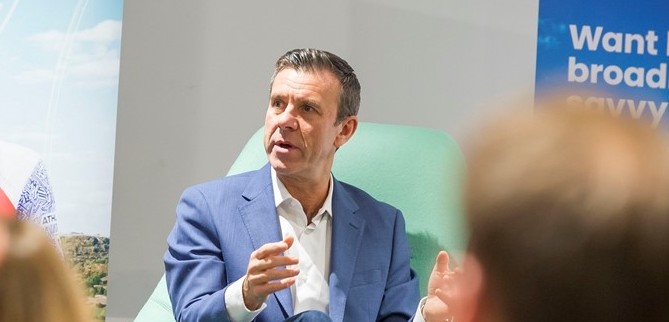Rural communities could wither and die without reliable, high-speed broadband, an event for businesses in Lincolnshire has heard.
Just under half of the UK has no access to fibre broadband, with rural communities such as those in Northern Lincolnshire often neglected by major broadband providers.
Sean Royce, CEO of rural broadband provider Quickline, said poor connectivity meant rural areas were “going backwards in terms of economic activity” because they were digitally disadvantaged in comparison with well-connected cities and towns.
Speaking during an event as part of the Great Big Small Business Festival in North Lincolnshire, run by business support group E-Factor, Mr Royce said Quickline’s mission was to tackle the digital divide between rural and urban areas.
He said: “We all know rural communities which have lost access to services such as their bank, Post Office, library, GP surgery or even their local shop, with people forced to drive miles to their nearest market town for services.
“Those people depend on having a fast, reliable broadband service to carry out their day-to-day tasks. But, for many living in rural areas, that service does not exist.
“For rural businesses, it’s no different. Without access to high-speed broadband, businesses will move from rural areas to towns and cities and rural communities will wither and die.
“Put simply, the better broadband a business has, the more services they can offer and the more markets it opens up for them. Digital connectivity drives economic growth and its importance cannot be overstated.”
Mr Royce said high-speed broadband was now critical to every aspect of life. “Those businesses that can’t access it or don’t embrace it, and the technologies it enables, will miss opportunities or, worse, go the same way as Blockbuster.”
He emphasised that the rollout of full fibre broadband was the second largest infrastructure investment in the UK and the largest privately-funded one.



